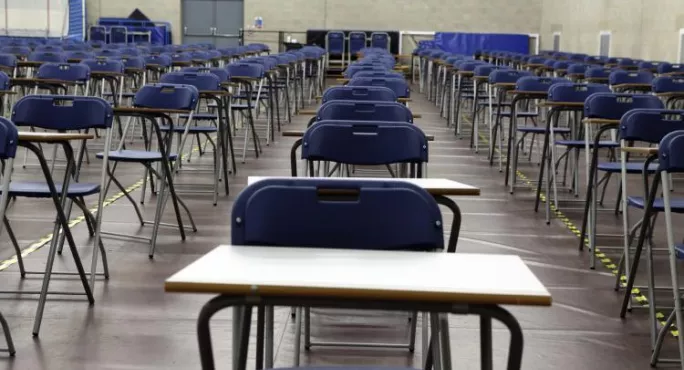- Home
- New Ofqual test results could change GCSE grades
New Ofqual test results could change GCSE grades

Ofqual would be wrong to use results from its new national reference test to change grade boundaries for this year’s GCSE exams, an assessment academic has warned.
The exams regulator revealed yesterday that it considered results from the test in English and maths - sat by pupils in a sample of schools - for the first time this year, as part of a range of evidence in setting grading standards.
In a blog, Ofqual said that it had “fed the NRT evidence into the awarding of GCSE English language and GCSE maths”. But the watchdog will not announce whether this has been used to adjust any grade boundaries until after GCSE results are released on Thursday.
Professor Alan Smithers warned: “It would be irresponsible to use it this year other than experimentally. The actual published GCSE results should be based on measures of previous years.”
Need to know: The GCSE national reference test
News: Maths scores up in GCSE national reference test
Background: Extra exams for 18,000 pupils as the ‘national reference test’ gets the green light
The academic, from the Centre for Education and Employment Research at the University of Buckingham, thinks that a test to assess changes in ability year-on-year - and adjust the pass rate accordingly - is a good idea.
GCSEs and the national reference test
He noted that Ofqual previously only had KS2 Sats as a reference point and separate measure of a GCSE cohort’s ability.
But Professor Smithers questioned whether the focus on English and maths skills in the test was “appropriate.”
“I thought it would be a test of cognitive ability, so I was surprised by the focus on maths and English,” he said.
The national reference test was piloted from 2017 as a means of assessing evidence on changes in performance over time in English language and mathematics, and is run by the National Foundation for Educational Research under a contract with Ofqual.
Sixty pupils from 350 schools in Year 11 sit the test each year to assess the percentage of pupils predicted to achieve a grade 4, a grade 5 or a grade 7 in their GCSEs. If the results change each year, the results could be used to adjust the GCSE pass rate.
“I don’t think it will be used this year,” Professor Smithers added. “It’s a new measure. There are questions over how stable the results will be.
“As schools familiarise themselves with the procedures, results will go up year-on-year, irrespective of the ability of the pupils.
“Ofqual need to be confident that a change in scores reflects a change in the ability of the cohort. They’ve got to be pretty sure the information coming out of it is sufficiently strong to move results.”
He said he thought schools might also be tempted to share the tests’ content among themselves, which could also potentially affect results.
Ofqual has said it will try to keep questions “as consistent as possible, reusing these each year” with “no routine replacement of any questions”.
When asked why schools would share the content of a test that has no impact on their actual GCSE results, Professor Smithers said: “Teachers gossip among themselves, and headteachers and heads of department get together at various conferences and forums. Those experiencing it will want to talk about it with others.”
He said that as the NRT “has nothing really in it” for schools or pupils, in that it does not contribute to any final outcomes for them, there were also issues around the motivation of pupils taking the test.
He said he suspected Ofqual would wait to see the reactions to the first set of published NRT this week before deciding whether to use the measure to move grade boundaries in the following year.
A spokesperson from Ofqual said: “We have always said we will be cautious about using the national reference test results to make an adjustment to grade standards in GCSE maths and English this summer.
“The reforms to these qualifications are still new, and any changes in performance could be due to them still settling down.
“On 22 August we will publish the 2019 NRT results, as well as details of how that evidence was used.”
Keep reading for just £1 per month
You've reached your limit of free articles this month. Subscribe for £1 per month for three months and get:
- Unlimited access to all Tes magazine content
- Exclusive subscriber-only stories
- Award-winning email newsletters



